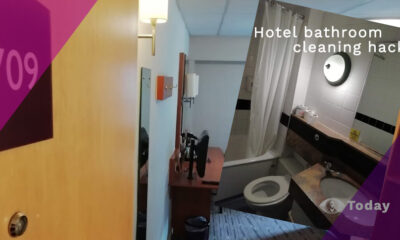42 per cent of women who took part in the research claimed they’ll be asked to make a round of hot drinks compared to just 16 per cent of men. Females are also more likely (50 per cent vs 21 per cent) to be asked about the wellbeing of their children, and to do menial or admin-based tasks (37 per cent vs 19 per cent).
It also emerged women are made the target of sexist jokes almost three times more than men (43 per cent vs 15 per cent). The research of 2000 workers across the UK was commissioned by Samsung UK and Ireland, which has committed to driving greater diversity and inclusion in the tech industry by becoming a Tech Talent Charter signatory.
It also found those polled hear gender biased language used in their workplace an average of four times a week. Specific instances included “persistently being called lady, sweetheart, or darling” and “being referred to as a woman ‘of my age’ after requesting a fan.”
And such things aren’t just said in informal chats, as 40 per cent have experienced gender biased language in meetings and 30 per cent during job interviews.
Tanya Weller, founder of employee resource group, Women@Samsung:
“The findings have revealed some shocking revelations about the stereotypes used towards women at work and how our choice of words is creating barriers to inclusivity in the workplace. Like all things, language adapts with time, and we know that as a society, we must evolve with it, by implementing a roadmap that drives greater equality and inclusion.
“For instance, we work closely with Textio to ensure that we set things off as we mean to go on and apply gender inclusive language in all of our job adverts at Samsung UK and Ireland.”
On a positive note, the research suggests UK employees are starting to challenge this vocabulary, with 64 per cent calling out gender biased language. Of those, 28 per cent highlighted it to the person directly, 22 per cent reported it to their boss and 14 per cent went to HR.
While 92 per cent are making a conscious effort to use inclusive language at work with terms such as ‘team’ and ‘all’. However, 19 per cent have wanted to correct someone at work for not using such terms but chose not to because they didn’t have the confidence.
Jackye Clayton, of Textio:
“Employers throughout the UK must take proactive steps to foster inclusive language – to attract talent and build a workplace which promotes workplace inclusivity. With almost half of UK employees using gender bias language at work, companies must do more to understand how and where unconscious bias is showing up and take action to remove it.
“It’s only by doing this that companies can become truly inclusive to everyone.”
The study found just 20 per cent of employees are fully aware of what their company is doing to challenge gender biased language. Actions they’d like their employers to take include offering inclusivity training (47 per cent), training on gendered language (30 per cent), and a review of terms used in job descriptions (28 per cent).
There is also support for a review of external messaging language as seen on company websites and careers pages (27 per cent), and a desire for positive messaging or signage in offices (24 per cent).
Tanya Weller:
“These findings tell us the crucial role language plays in normalising gender stereotypes at work. Subtle phrases like ‘Hi Guys’ is something many of us say without thinking, but maybe without realising it, we’re alienating people. This acts as a great reminder to be thoughtful in the way we express ourselves as individuals and as businesses.”
Louise Mullany, professor of sociolinguistics and an expert on the language of diversity and inclusion, has worked as a linguistics consultant on the Samsung survey and campaign.
The professor has provided some alternative words and phrases offering advise on how people can switch using gender neutral language at work, including people instead of guys, everybody instead of lads, and team instead of darling.
Gendered words to use and avoid in the workplace
Words to use
- People
- Everyone
- Everybody
- Folks
- They
- All
- Team
- You
Words to avoid
- Guys
- Girls
- Lads
- Ladies
- He/she
- Sweetheart
- Darling
- Love












